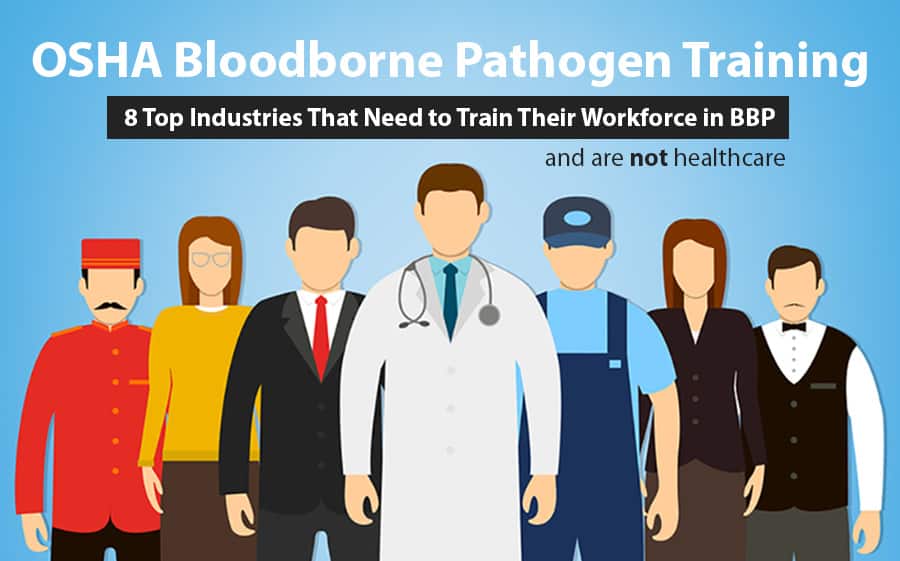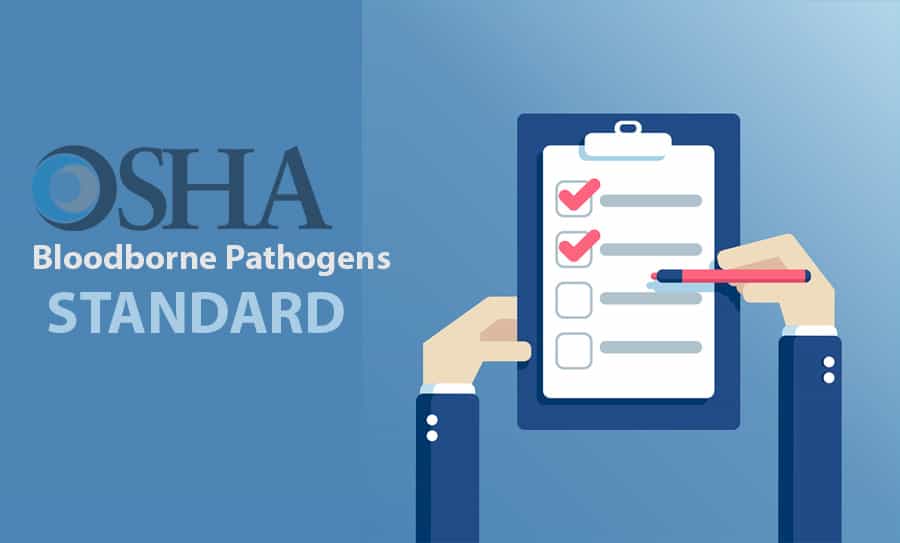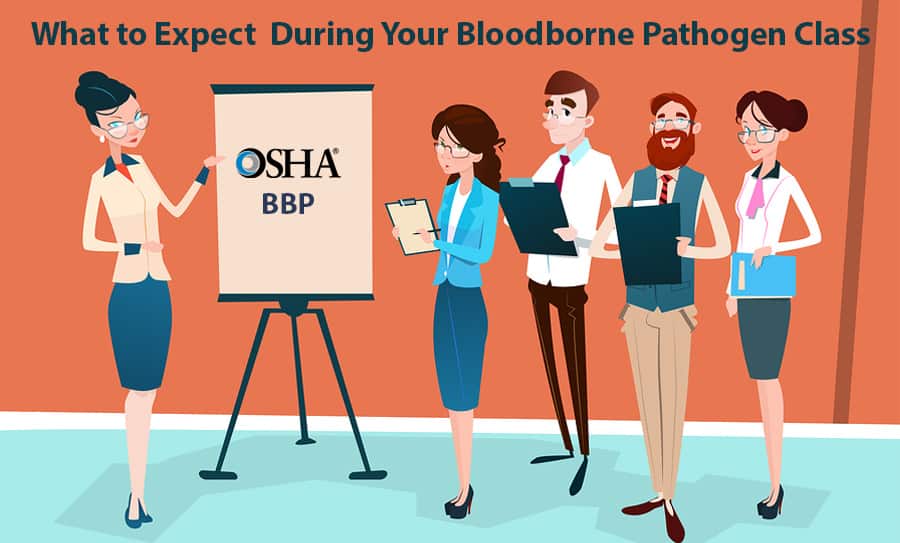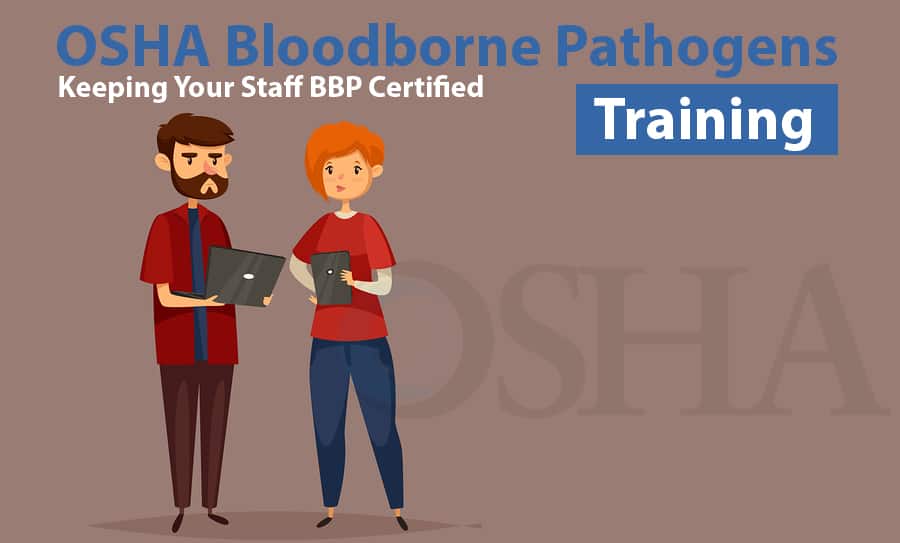8 Top Industries That Need OSHA Bloodborne Pathogen Training for Their Workforce
When you think “bloodborne pathogen training”…well, you probably don’t.
Unless you’re a healthcare worker or homophobic, bloodborne pathogens probably don’t cross your mind all that often.
But bloodborne pathogens can cause some very serious, long-lasting diseases, and more industries than you realize may be at risk.
While healthcare workers deal with blood on a daily basis, even they aren’t always as careful as they should be. And for those of us who aren’t in the healthcare industry, the whole idea of blood safety may seem foreign.
Let’s take a look at eight industries that can benefit from added OSHA bloodborne pathogen training.
Why is OSHA Bloodborne Pathogen Training Necessary?
Pathogens transmitted by blood are a special breed. Unlike the flu or common cold, which are airborne, diseases in the blood are often long-term, chronic conditions.
There are many bloodborne pathogens, and many of them, like malaria, aren’t common in the United States (although it is getting more common). But others, like Hepatitis B and C, and HIV, are quite common and can be a real danger in industries that come into contact with blood.
Education
About 97% of American children head to schools all over the country every day. And throughout the course of the day, they fall, they fight, they pick their nose a little too long. And the blood flows.
And with school districts across the country cutting funding for school nurses, it may be down to teachers to deal with the flow of blood.
Providing teachers with OSHA bloodborne pathogen training helps keep educators and students alike safe.
Manufacturing
We’ve all heard horror stories of early factories and the casualties they accumulated. And while modern manufacturing is nowhere near that level of dangerous, blood is still spilled on the factory floor occasionally.
The presence of moving parts and machinery can spread blood throughout a factory, widening the reach of pathogens. The proper training can help ensure that workers know how to limit that reach.
Construction
Power tools? Heights? What could go wrong?
On even the safest construction sites, cuts and scrapes are common. And because construction turnover can be high and workers often move between worksites on a daily basis, bloodborne diseases have the potential to spread quickly from site to site.
Training in bloodborne pathogen control makes sure that any disease risk stay contained
Child Care
Child care workers are required by almost every state to have first aid and CPR training. Unfortunately, that training may not include information on bloodborne pathogens.
If a child is bleeding, teachers must be able to not only to provide first aid but to keep other little ones safe. This is especially true in classrooms containing children under the age of two, who are prone to putting everything in their mouths.
OSHA Bloodborne pathogen training is vital for teachers of age groups just learning to walk. This group falls constantly, necessitating many a bandaid, and is also still in the phase of exploring the world orally. Bloodborne pathogens are spread just as easily by blood-to-mouth contact.
Body Artists
Tattoo artists and piercers are often highly conscientious of their training and of maintaining a clean shop. But not all states require training in bloodborne pathogens.
Which makes little sense, considering how much blood artists like these come into contact with on a daily basis.

Most body artists are incredibly careful, even if they haven’t had official OSHA training. But even replacing needles for every client doesn’t mitigate all risks, and it doesn’t protect the artist themselves.
Everybody that’s an artist, whether tattooing or piercing or both, should have proper OSHA bloodborne pathogen training.
Maintenance
This is a broad category and includes everything from handymen to janitors.
In any industry, when a mess is made, from whatever bodily orifice, maintenance is called in to clean it up. And handymen are no strangers to cuts and scrapes. This category sees a surprising amount of blood for a non-healthcare industry.
Providing OSHA bloodborne pathogen training to maintenance workers ensures that proper protocol is followed during cleanups, so diseases can’t spread and maintenance workers themselves are kept safe on the job.
Fitness Workers
Gyms are surprisingly dangerous places. lots of heavy equipment, lots of opportunity for falls and injuries. And lots of bodily fluids in general. With so many bodies sharing weights and machines, the risk of disease spreading is enormous.
And while everyone reading this article obviously takes the time to spray down their equipment after use, we can’t guarantee that Keith-from-work-who-cut-his-finger-last-week-and-is-not-wearing-a-bandaid is doing the same.
Most fitness workers have CPR and first aid training, and some, like nutritionists and trainers, may even have basic medical training. But giving them the extra tool of OSHA bloodborne pathogen training helps keep your gym or fitness center a pathogen-free zone.
Food Handling
Food workers do their jobs in close proximity with both knives and fire. It makes sense that they would be required to have OSHA bloodborne pathogen training. The reality though? Not all states mandate it.
Not only can bloodborne pathogens pose a danger to food service workers themselves, but also to customers, who likely do not want a side of Hepatitis with their Chicken Cacciatore.
Even just providing managers with this training can stop bloodborne issues before they happen, and infusing the training into the safety of a restaurant helps keep workers accountable and informed.
Giving Workers the Right Training
If you are outside of healthcare, OSHA bloodborne pathogen training might not be on your mind. But any workplace can have a blood loss emergency or accidental needlestick happen during work hours.
This kind of training is vital for multiple industries, from education to law enforcement to public service.
So if you are looking for bloodborne pathogen training for your workplace or organization, check out our training options today! We can help you get certified, certify your workes, and make your company a safe place to work.






